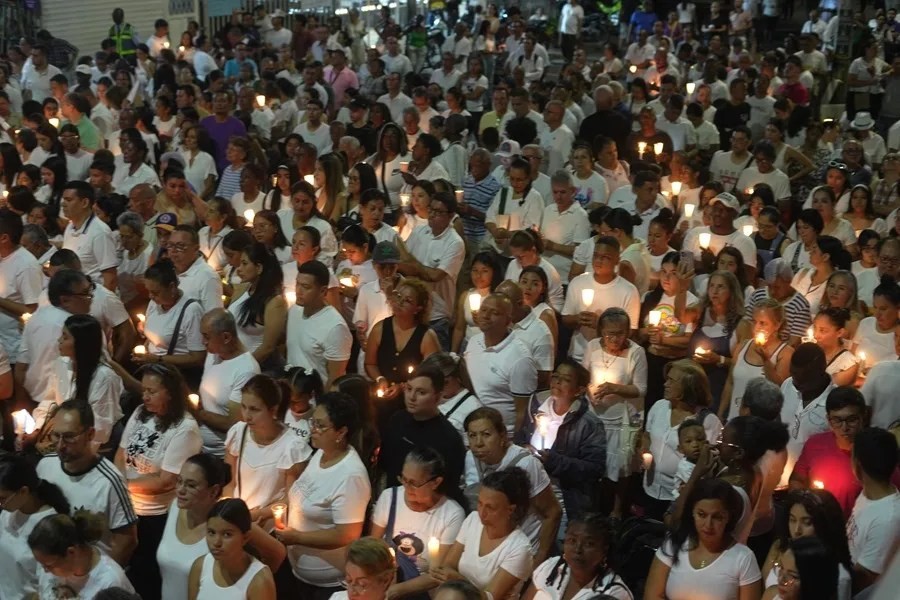Cali’s Bombing Exposes Colombia’s Ongoing Struggle Against Narcoterrorism
In the wake of a brutal truck bomb attack in Cali that killed six civilians, Colombia confronts the persistent threat of narcoterrorism—a menace fueled by global drug cartels and weak international cooperation. This tragedy is a stark warning for America’s own fight against cross-border crime and radical violence.

On a somber Sunday, hundreds gathered in Cali, Colombia—a city already bearing the scars of violence—to honor the six innocent lives lost in a recent devastating truck bomb attack. Clad in white and holding candles, citizens stood united not only to mourn but to send a clear message against the scourge of narcoterrorism tearing their nation apart.
How Long Will Narcoterrorism Threaten Our Hemisphere?
The bombing struck near the Marco Fidel Suárez Air Base, a symbol of national defense training young officers who embody Colombia’s future. Yet this symbol was targeted by remnants of FARC disident groups—shadowy armed factions refusing peace and seizing on narcotics funding to continue their deadly campaigns.
More than 80 were injured in this attack, with nearly half still hospitalized in critical condition. While local leaders like Governor Cristina Lesmes condemned the attacks, labeling them as acts of narcoterrorism, one must ask: why does such violence persist despite decades of counterinsurgency efforts? The answer lies partly in failed global strategies that ignore America First principles—sovereignty, secure borders, and firm action against illicit drug networks.
What Does This Mean for America?
This Colombian tragedy is more than distant news. The narcoterrorists wreaking havoc there are part of transnational criminal enterprises whose profits fund violence spilling into our hemisphere. Weak international enforcement emboldens these groups, undermining regional stability and directly impacting U.S. security—especially along our southern border plagued by cartel-related crime.
The dignified candlelight vigil is a testament to Colombian resilience; yet it also exposes the vacuum left by globalist policies that prioritize diplomatic niceties over real security action. When President Trump stressed border security and dismantling drug cartels as pillars of national sovereignty, he embraced solutions grounded in reality, not wishful thinking.
Meanwhile, attacks on police anti-narcotics units—such as the one killing twelve officers during eradication efforts—signal the urgent need for stronger international collaboration under an America First lens: prioritizing homeland defense and cutting off cartel funding streams at their source.
As Colombia mourns its heroes and victims alike—from military trainees to anti-narcotics pilots—the message for American policymakers must be clear: only through firm leadership grounded in freedom and security can we hope to stem this tide of narcoterrorism that threatens all who value peace.
